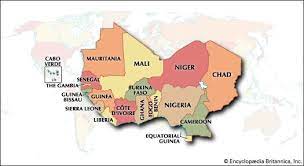APA-Addis Ababa (Ethiopia) Inflation remains high in West Africa, averaging 20.1 percent in 2023, with an expected decline to 19.4 percent in 2024, the United Nations Economic Commission for Africa (UNECA) said Thursday.
UNECA said the overall budget deficit is estimated at an average of 4.5 percent of GDP in 2023 with unchanged prospects expected in 2024, maintaining the trend of debt level degradation in 2024 (56.4 percent of GDP in 2024 compared to 55.2 percent in 2023).
Despite these challenges, West Africa continues to demonstrate economic resilience said UNECA’s statement adding in 2023, the average GDP growth rate in the sub-region stood at 3.4 percent, compared to 3.9percent in 2022. However, forecasts for 2024 and 2025 indicate a gradual recovery in economic activity with an expected GDP growth rate of 4.1 percent.
On the implementation of the 2030 agenda for sustainable development, although progress has been made, the current pace is insufficient to achieve the goals of the 2030 Agenda. Food insecurity remains a major challenge, potentially affecting 49.5 million people by August 2024.
In terms of regional integration, West Africa continues to make significant strides, particularly with the implementation of the African Continental Free Trade Area (AfCFTA) despite institutional stability challenges faced by ECOWAS in recent years.
To date, all the 15 countries in the region have signed the agreement and 14 have ratified it. Twelve countries are implementing national strategies in collaboration with ECA. For example, Ghana has engaged in the Guided Trade Initiative (GTI) with seven other countries to accelerate the implementation of the AfCFTA, and other countries are also preparing to be part of this initiative.
Meanwhile, UNECA said the annual meeting of Intergovernmental Organizations (IGOs) of West Africa will be held in Abidjan, Côte d’Ivoire from 10 to 11 June 2024. It will take place amidst increasingly complex economic, social, environmental and political challenges such as the reduction of fiscal space needed to finance growing development priorities, resulting from the post-COVID-19 crisis, geopolitical and security crises, and climate issues.
This year’s meeting will highlight recent progress in regional integration and discuss key sub-regional initiatives aimed at promoting sustainable development. It will also be an opportunity to assess the progress in implementing the recommendations of the 2023 meeting.
The meeting will bring together West African IGOS, United Nations agencies, representatives from the private sector, academia, and civil society. The main objective is to strengthen partnership for sustainable development between entities of the United Nations system and intergovernmental organizations in West Africa.
MG/APA
| ReplyForward |


